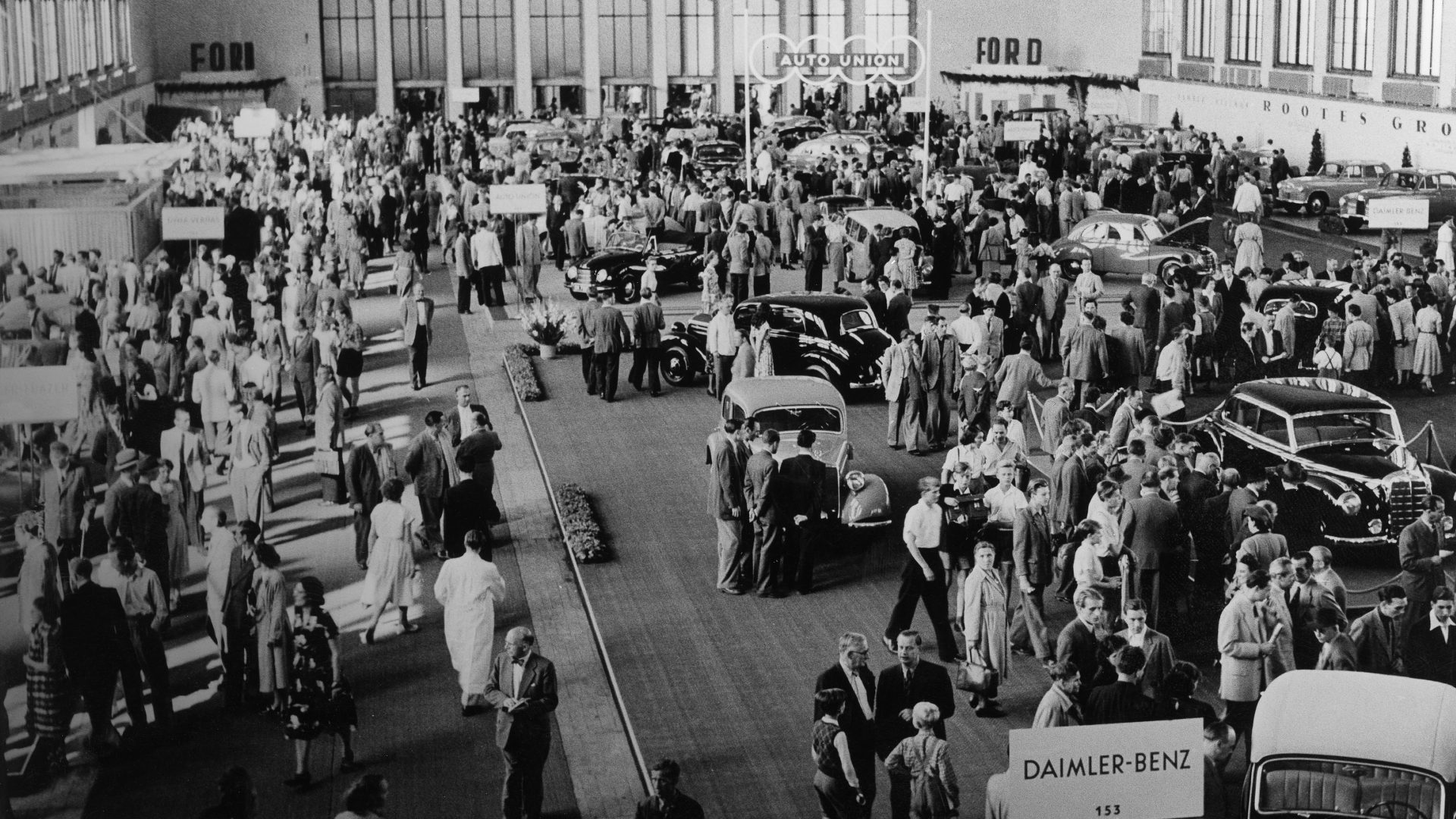Last month the Global Britain Commission, a think tank set up by Liam Fox, the former trade secretary and Brexit cheerleader, issued its first report on the country’s future. It did not receive much media attention and it is not hard to see why.
It is mainly a series of what-ifs and warm words, with its most striking claim being that if the UK increased its exports to the same level as Germany’s the UK would have an extra £474bn in exports, which would create 5.5 million new jobs, which would be 7% better paid than average wages. Rarely has the word if done so much heavy lifting.
The latest Brexit fantasy is, it seems, that the British economy will be just fine, so long as it can emulate the export success of Germany. Global Britain just needs to sell to the world like the Germans do, and all will be just dandy.
The blindingly obvious fact that Germany manages to be a huge exporting nation while still a member of the EU is lost on Brexit supporters. Not only that, but they seem not to have noticed that the UK’s trade has fallen by 15% as a direct result of Brexit. The figures come from the extremely reputable Office for Budget Responsibility (OBR) and are the ones the chancellor will be well aware of, as the OBR is the body that checks his figures for him. The collapse in trade is expected to be permanent; running backwards is not the way to catch up. Just replacing the trade lost because the UK left the EU would be a massive task, catching up with Germany is therefore just a fantasy.
The fact is that the premier league of exporters consists of China, America and Germany – everyone else is in a lower division.
But suddenly, the answer is to be more Germanic.
So, let’s take this desire at face value and look at how and why Germany has been such an exporting success story and what the UK would have to do to achieve the same results.
Having visited German firms more times than I can remember, the efficiency, productivity, training, management, and technology have never failed to impress. We certainly have something to learn in that regard.
But besides the quality of its firms, the main reason that Germany has continued to be such a brilliant exporter is that it is surrounded by countries that want and need its products and which are part of the single market, or in Switzerland’s case are as near as makes no difference.
The Brexit supporters who want to be more like Germany seem to have forgotten that, just like the UK, Germany’s biggest export market is Europe. In fact, well over half of its total exports go to other EU member states. The UK, still a major consumer of German goods, is slipping down the league table and may soon fall out of the top 10 exporting and importing destinations for German business – a direct hit from Brexit.
Exporting to other EU countries is, of course, very simple for Germany because it has stayed in the single market. Having left, the UK is now at a distinct disadvantage – red tape at the borders, form-filling that costs billions a year and soon more veterinary checks as well. Trying to catch up with Germany by making it more difficult to export to your biggest market is economic illiteracy of the highest order. Leaving the single market, in and of itself, makes the dream of catching up a chimaera.
But Germany is not just a great exporter because of the EU, it exports around the world as well. Its biggest market is America, but it has also made a huge success of exporting to the developing world.
Just one example is a company I visited in Frankfurt for a report many years ago in order to illustrate just this point. Glasbau Hahn makes what you might think is not a very technically advanced or glamorous product. It specialises in making glass display cabinets for museums, a product that might bring to mind dusty halls in Victorian buildings, a pretty quiet, not to say soporific, market.
But just think. Countries like India and China are getting wealthier by the day and consider it a mark of honour to use some of that money to repatriate artistic, cultural and historical objects from around the world, items often lost, if not stolen, during the colonial era. To display them they need dozens of new museums and thousands of new display cabinets. And not just any old wooden display cabinets. These precious objects need to be protected from sunlight, moisture, fire and theft. Some objects are so delicate they need to stay in cabinets full of inert gas.
How much do you think a reinforced, bulletproof, fireproof, temperature- and moisture-controlled or even inert gas-filled cabinet costs? It is now big business.
It is just one example of the most important factor in Germany’s export success: they still make things, and to be more precise, they make things that developing countries need and want. As a result, Germany is the thirdlargest exporter in the world. The UK would have to more than double its exports to match Germany’s level.
That is going to be a problem because the UK has stopped making many of the things developing countries need in order to develop. Germany is full of companies that make not just display cabinets but machine tools, pumps, generators, trucks, railways, packing machinery and hundreds more things a country needs to become a modern, industrialised nation.
China, India, Vietnam and many other developing countries need to rapidly develop their transport and other infrastructure, build factories and equip them with the latest machine tools. They have an almost insatiable desire for power generation equipment, energy distribution systems, railways, roads, new ports and a dozen other high-tech and mechanically advanced products. Germany makes what they need.
Just look at India. Its business language is English, its legal system is based on English law, its infrastructure was built by the British, its trade links were dominated by the British empire for hundreds of years. The UK has millions of citizens whose families were originally from the subcontinent, speak the languages and seem to be an entrepreneurial bunch of people.
Yet German exports to India are 76% higher than the UK’s. The UK just stopped being a country that made many of the things India needed, most notably in the 1980s. It is no coincidence that the last time the UK had a trade surplus in manufactured goods was 1982. North Sea oil and monetarist policies pushed up the value of the pound in the middle of a deep recession, and much of British industry didn’t survive. Margaret Thatcher decided the UK was going to move from heavy industry towards a service-based economy.
It is a bit late now to try to reverse that trend. It would be impossible to recreate firms or industries that went out of business 40 years ago. The UK has trouble training enough skilled staff for its existing factories and the sectors where we do enjoy a competitive advantage would have to be run down to make space for this policy of re-industrialisation.
But all is not lost: the UK has an economy that specialises in services and luxury goods. Many developing countries are not yet wealthy enough to take advantage of everything the UK has to offer, but they will be eventually.
Scotch whisky, smoked salmon, Burberry jackets, Mulberry handbags, and golfing holidays for the nouveaux riches, pensions, university education and life insurance for the middle classes. This is what the UK has to offer and one day millions of Indians, Chinese, Indonesians and Filipinos, among others will be queuing up to come to this country to have afternoon tea, before visiting their children at school and their banker in the City.
That, at least, is the theory, but even here competition will be tough. The Schengen Area means Chinese tourists only need one visa to visit most of Europe but another one to get to the UK. Germany, Switzerland, France and many other countries have plenty of luxury goods of their own, as well as financial firms and banks keen to look after your money and restaurants to visit while you are in town.
Trying to increase UK exports would be a good thing. We are, as Mark Carney, former governor of the Bank of England, used to say, very “dependent on the kindness of strangers”. But there is no sign whatsoever that the UK will ever be able to catch up with Germany.
What possible policy could lead to a doubling of exports? What could we export that we don’t already and why have we made it more difficult to export to our largest market?
You may have noticed that the Government is now buying double-page spreads of “promoted content” in UK newspapers. Paid for by the British taxpayer, it encourages firms to export. This is little more than propaganda, it is not an export strategy.
When it comes to exports, global Britain just isn’t in the same league as Germany, and leaving the EU has meant demotion, not promotion.




